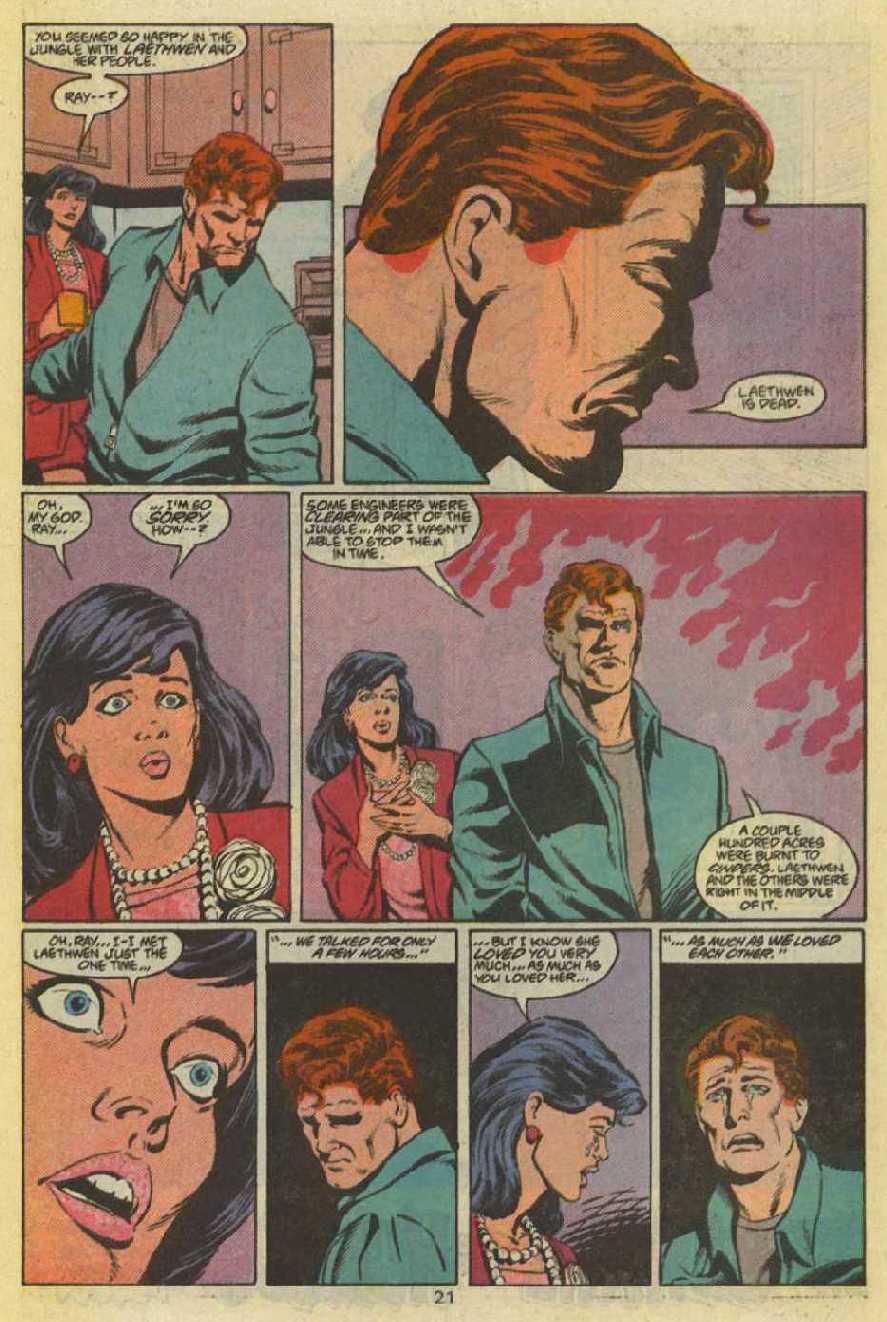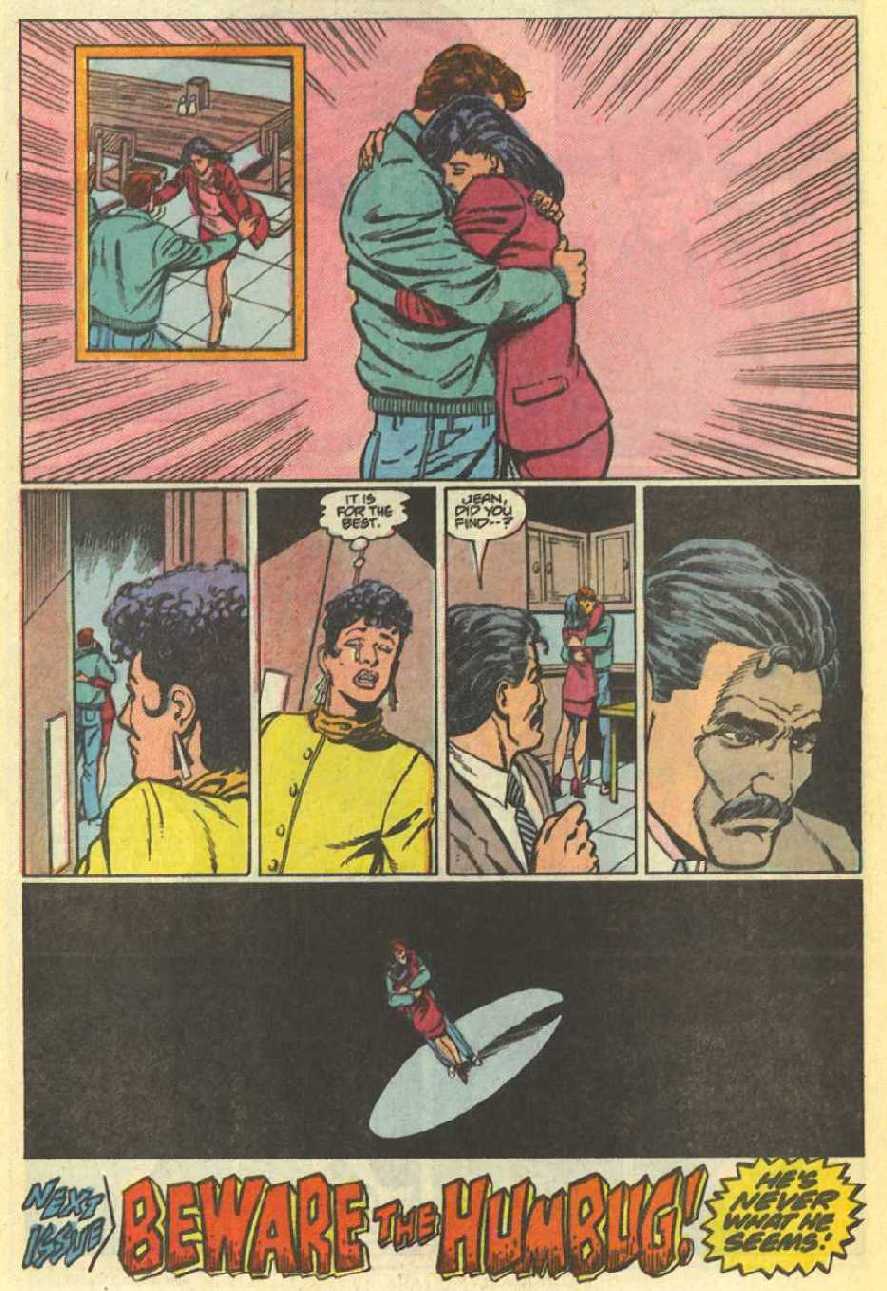“You know, the Atom is one of the DC comics characters I've always thought could be the medium for some really trippy stuff: I mean, the man can shrink below the subatomic plane and enter whole new universes, explore the cellular, and harness the power of white dwarf star material. I'd love to see a story where Ray Palmer decides to explore 'microspace' in more detail, or gets involved in an adventure against a cancer invasion or something.” – From a comment on Dave Fiore’s Culture Blog
“I thought they really missed the boat with the Atom when they de-aged him. I forget how it happened; I think it happened during Zero Hour. Regardless, that was a hell of an idea; to be 18 years old, with all the memories of your former life. What do you do differently? Do you even want to be a scientist this time around? Do you want to avoid becoming the man you used to be? But they never really dealt with it, just stuck him in the Teen Titans and re-aged him a couple years later.” – From another comment on Dave Fiore’s Culture Blog
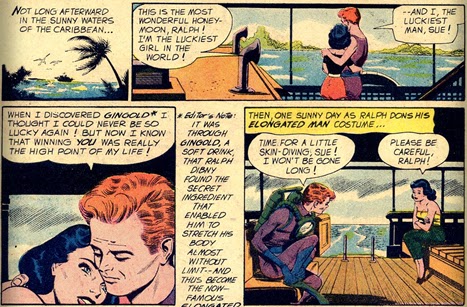 I
once thought Martian Manhunter and Green Lantern were some of the
most shoddily treated characters in the DCU. But then again, a lot
of characters in the DC Universe, and even in the Marvel Universe,
have been subject to cold-shoulder misuse over the years, and it’s
almost astonishing.
I
once thought Martian Manhunter and Green Lantern were some of the
most shoddily treated characters in the DCU. But then again, a lot
of characters in the DC Universe, and even in the Marvel Universe,
have been subject to cold-shoulder misuse over the years, and it’s
almost astonishing.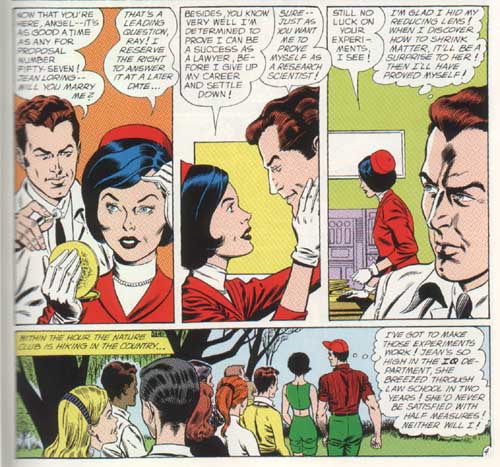 Elongated Man never had a real solo series at
the time, but did get his very own segment in Detective Comics for
17 years in 1964-81 (with 4 stories published in The Flash and one
in Justice League of America), in which he and his lovely wife Sue
(who looks so adorable with both long and short ‘dos, which she
alternated between for many years), went on many lighthearted
adventures in crimefighting together, in a Thin Man-inspired
concept. Even after Detective stopped carrying their feature, they
still turned up in backup stories in various other books until the
late 70s, and Ralph got his own miniseries during 1992.
Elongated Man never had a real solo series at
the time, but did get his very own segment in Detective Comics for
17 years in 1964-81 (with 4 stories published in The Flash and one
in Justice League of America), in which he and his lovely wife Sue
(who looks so adorable with both long and short ‘dos, which she
alternated between for many years), went on many lighthearted
adventures in crimefighting together, in a Thin Man-inspired
concept. Even after Detective stopped carrying their feature, they
still turned up in backup stories in various other books until the
late 70s, and Ralph got his own miniseries during 1992.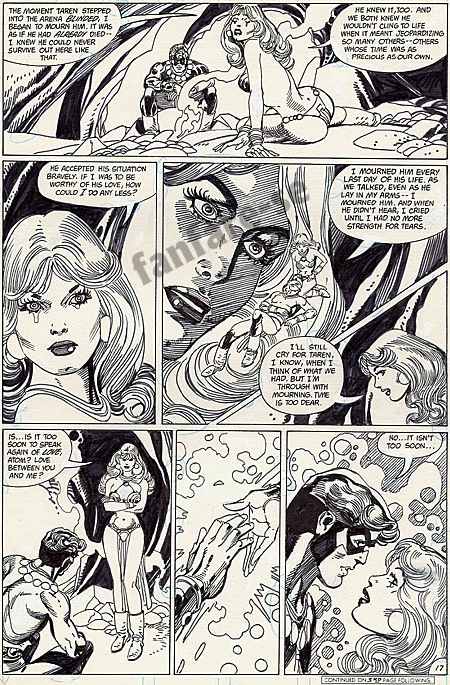 book built upon their deaths and degradations? And
even with the Mighty Mite, they didn’t seem to really care.
book built upon their deaths and degradations? And
even with the Mighty Mite, they didn’t seem to really care.“Grant's column was excellent - and he's exactly right. And, thinking it over, it's probably also why the murder of Sue Dibny seemed extra-terrible in its way. Here was a woman who had been written as an actual strong female character, not a Claremont strong female, but like a real person. And she's killed for what seems to be some cheap shock and pathos. And the way they layered it on - first she's murdered, then she'd been retroactively raped, then she was pregnant when she was murdered. It was like she'd been such a strong woman in the past that they needed to pile the degradation onto her post-mortem, just to make sure we all got the point and that the male characters around her would get their vengeance on.
I'm afraid there may be something even more disturbing going on though. Superhero comics are often described as "escapist fantasy," and they largely are. Is this kind of rape and degradation of female characters part of some folk's escapism? Is that part of what is driving this in the marketplace? I'd like to think not, but I don't know that I have that much faith in my fellow man anymore.”
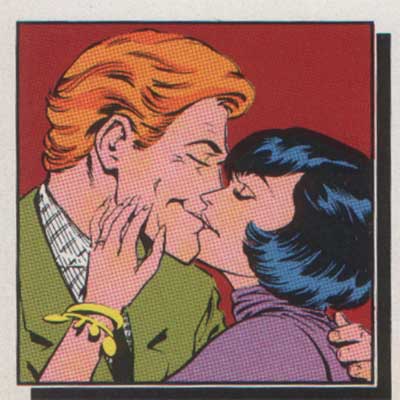 On Sue: I fully agree. She was real and believable
in ways that most Marvel women couldn’t hold a candle to. Due in
part to the fact that DC, when creating their female characters,
didn’t usually try to flood them in the kind of melodramatics that
Stan Lee was doing with some of Marvel’s own leading ladies when he
created them (Gwen Stacy, Lady Dorma). They were pretty strong in
characterization, didn’t just follow after the leads like they were
some lost puppy dogs, and most importantly of all: they stood up for
themselves.
On Sue: I fully agree. She was real and believable
in ways that most Marvel women couldn’t hold a candle to. Due in
part to the fact that DC, when creating their female characters,
didn’t usually try to flood them in the kind of melodramatics that
Stan Lee was doing with some of Marvel’s own leading ladies when he
created them (Gwen Stacy, Lady Dorma). They were pretty strong in
characterization, didn’t just follow after the leads like they were
some lost puppy dogs, and most importantly of all: they stood up for
themselves."Having been referenced in the paragraph preceding, the Ray Palmer/Jean Loring relationship merits some further explication. As the leading criminal attorney in their mutual home town of "Ivytown," Ms. Loring was portrayed (long before such things became "politically correct" and de rigueur) as being in the putative "driver's seat," re her romantic involvement with Ray Palmer. (A characteristic she shared, incidentally, with -- among other notable comic book women of the day -- Carol Ferris [GREEN LANTERN] and Iris Allen [THE FLASH]) In THE ATOM, it was Ray Palmer who continually "pushed" for marriage, while the career-conscious Jean repeatedly avowed that "my work comes first." "Old hat," today, to be sure... but as a recurring leit motif throughout the DC titles of the 60's and early 70's, ground-breaking in the extreme.
(Compare, if you will with the Marvel comics women of the period; even when legged in spandex, such ostensible "action heroines" as Sue Richards [FANTASTIC FOUR] and Marvel Girl [THE X-MEN] were just as likely to spend the bulk of their "face time" mooning like lovesick calves over their respective romantic idee fixees as they were demonstrating actual Competence or Self-Sufficiency. "Point," in this instance DC.)"
“Jean Loring kept turning down Ray Palmer's proposals until she had made her name as a lawyer. As a genre convention it makes sense, but from a real-world perspective, it had a number of uncomfortable elements -- such as the implication that as soon as Jean married she had to stop being a lawyer, and Jean's cruelty in keeping Ray on a string.
So when a later writer had Jean cheat on Ray, it actually didn't strike me as a clumsy writer's fiat -- in context of the character, it made an uncomfortable amount of sense. She had always taken Ray for granted, and her lawyer life (she slept with another lawyer) had always been more important.
(From my perspective, I thought Ray was better off without her.)” – Andrew Smith, March 22, 2004
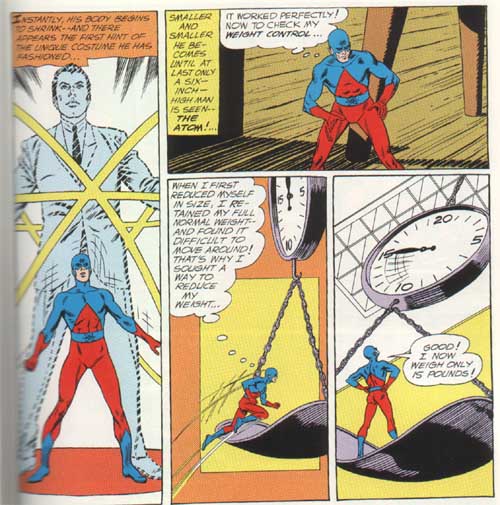 Second, what’s this about an
implication that she had to stop being a lawyer, as if that was
required by law when getting married? Whatever she said there, that
doesn’t mean that she literally, flat-out meant it seriously, that
she would actually give up her career upon marrying him, nor was she
ever required to. Whether or not she would was her own personal
freedom of choice.
Second, what’s this about an
implication that she had to stop being a lawyer, as if that was
required by law when getting married? Whatever she said there, that
doesn’t mean that she literally, flat-out meant it seriously, that
she would actually give up her career upon marrying him, nor was she
ever required to. Whether or not she would was her own personal
freedom of choice.“What this means is that the HORROR of the story, the slaughters of Sue and her unborn child, the orphaning of Robin (which dramatically works against Tim -- HE became Robin out of belief of the mantle, not rage at loss like Bruce or Dick or even Cassandra), the absolutely bewilderingly so out-of-character destruction of Jean (and thus functionally Ray, the single most s[p]at upon of all of DC's "icons"), not one of those things had to have happened in order to tell the MAIN story, the brainwashing plot. And that to me, is repugnant.”
